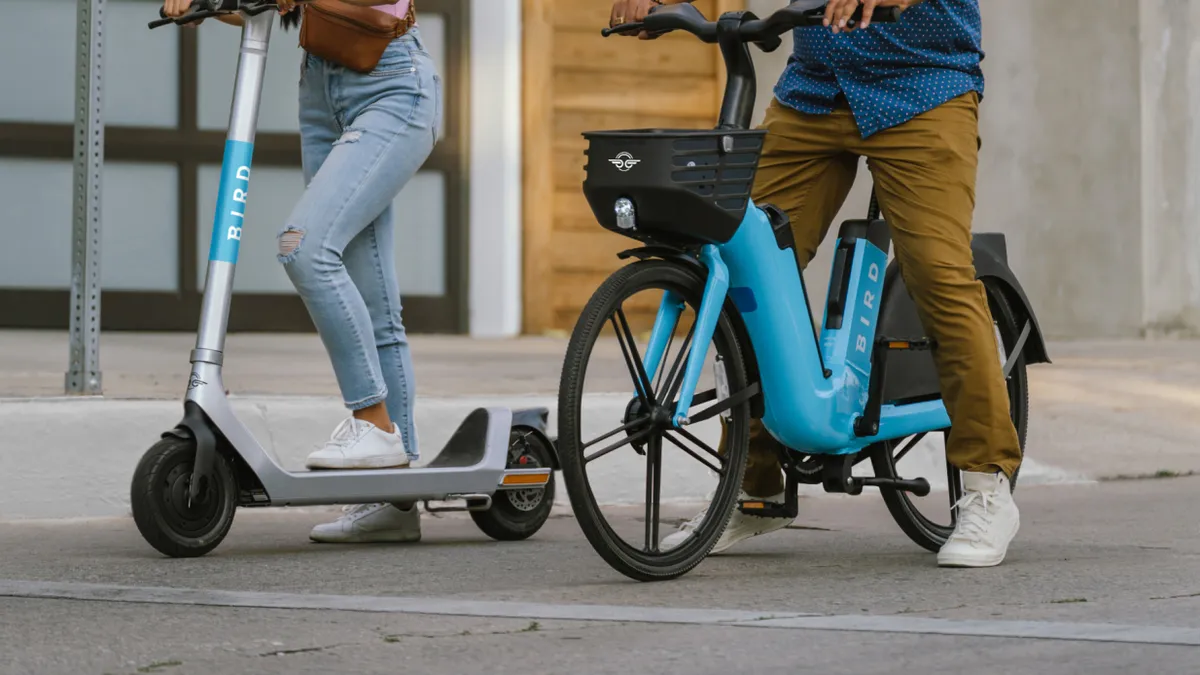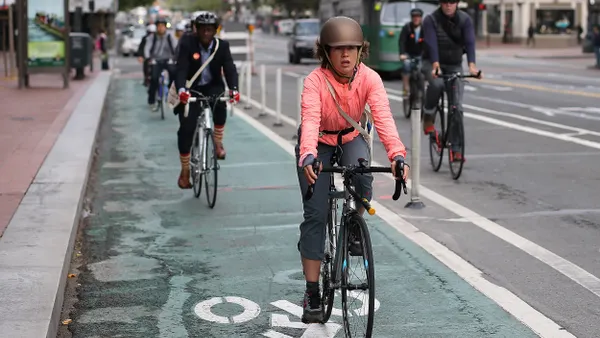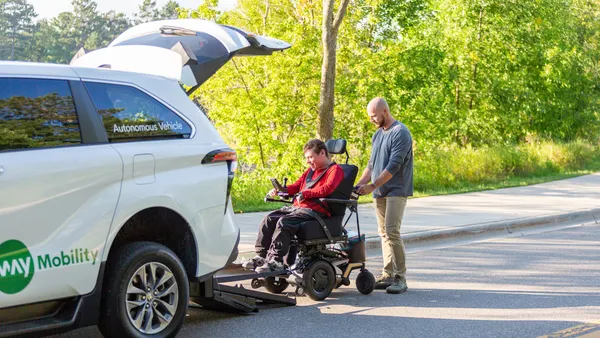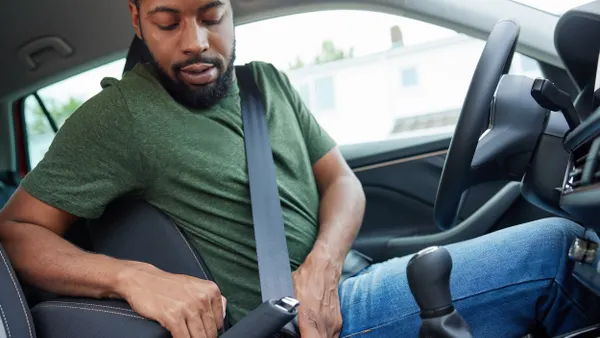Dive Brief:
- Bird announced Wednesday it would introduce dockless electric bikes to select cities in North America and Europe later this year, expanding on its dockless scooter fleets.
- The company said its "Bird Bikes" will hit a top speed of around 15 miles per hour, and travel 56 miles on a single charge. The vehicles will also include geofencing technology to slow or stop the motor in designated areas, and an integrated cable lock for added security, which are similar features to its competitors.
- Bird said its new bikes will be available alongside a number of existing bike-share and moped operators, including Zig Zag in Italy, as part of its new Smart Bikeshare platform. Bird said the platform, which should enable its bikes to be accessible in others' apps, makes it "the first scooter operator to integrate with existing local shared bike and e-moped providers and transit apps." The company said it is also working closely with the North American Bike Sharing Association and other groups to help integrate its new product into cities' transportation offerings.
Dive Insight:
The coronavirus pandemic inspired a surge in cycling, encouraging several micromobility companies to reinvest in bikes, and prompting the reintroduction of pro-cycling bills in Congress. Competitor Lime also expanded its offerings, investing in shared mopeds.
Bird's transition into bikes also follows its May announcement sharing plans to go public on the New York Stock Exchange in the second half of this year at a potential $2.3 billion valuation. At the time, CEO and founder Travis VanderZanden said the company would look to expand beyond dockless scooters. In a statement Wednesday, VanderZanden said scooters helped "lay a critical foundation" and that moving into bikes will "help broaden micromobility access."
Micromobility companies have struggled to turn a profit since they hit city streets several years ago, and diversifying their product offerings could be one way of turning that around if they find new users. It is a strategy that has also been employed by ride-hailing companies Uber and Lyft in their own hunt for profitability. Lime said in November of last year that it had a profitable quarter but has declined to produce paperwork backing up their claims. Meanwhile, Veo CEO Candice Xie said her company reached profitability in May, and criticized Lime's "PR plays."
Still, in its S-4 filing with the Securities and Exchange Commission as part of going public, Bird noted it has incurred "significant" losses in the past and acknowledged uncertainty around future profitability.
Bird also emphasized its desire to partner with cities and existing mobility options, a vast departure from the past when dockless bikes and scooters would arrive sometimes unannounced on city streets. The company now says it is focused on "supporting and supplementing existing mobility services, not replacing or displacing them."











